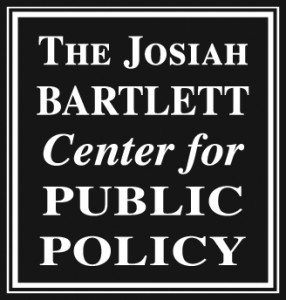Two months ago, New Hampshire’s unemployment rate was 2.6%. The unemployment rate is now 17 percent, and on Thursday a deputy commissioner for employment security said it probably will hit 20%.
Nearly 183,000 Granite Staters have filed unemployment claims since the coronavirus contraction began in March. The state has paid $400 million in unemployment benefits in that time.
For perspective, that’s more people than live in Manchester, Concord, and Londonderry combined. All out of work.
For a decade,New Hampshire has experienced so much job growth that the North Country’s unemployment rate had dipped below the national average. In December, Berlin had the state’s highest unemployment rate — at 3.1%. In Concord and Lebanon, the rate was below 2%.
Business closures cut revenues, and lower revenues lead to cuts in employment. When employers can’t earn a profit, they can’t hire people.
People who no longer have jobs turn to the government for help. To fund that aid, the government turns to the businesses whose tax payments fund government relief programs.
The source of funding for both the employee paychecks and the government relief checks is the same: an employer. (In New Hampshire, business taxes are the state’s largest source of general fund revenue, and businesses pay unemployment insurance taxes. At the federal level, businesses generate the personal income Washington taxes.)
In “Field of Dreams,” Terence tells Ray that the one constant in American life is baseball. (Which, by the way, we no longer have.) In the economy, the one constant is business.
Business is the foundation upon which everything else rests. It’s provides a living for the people, creates the wealth that funds government services and drives the innovation that improves our lives.
We take it for granted, as we take for granted the carefree life created by public sanitation, vaccines, pesticides, electricity, home insulation, air conditioning, modern mobility, and thousands of other technological advances.
We take free enterprise so thoroughly for granted that politicians can build entire careers solely on attacking it.
To believe business is the enemy of the people, one has to believe that prosperity and modern life expectancy would exist independent of it. But they don’t. They are entirely dependent upon the innovation and the prosperity created by the business activity that flourishes in a free enterprise system.
There is only one way to rebuild the life we had before March (to the extent that we can). It is to let businesses do what they do — generate the wealth that’s shared in paychecks, dividends, tax payments and charitable donations.
Individual businesses might be your adversary from time to time, but business in the broad sense is not your enemy. It is the foundation of modern life. If we cripple it, we cripple our entire civilization.
Andrew Cline is the President of Josiah Bartlett Center for Public Policy.
